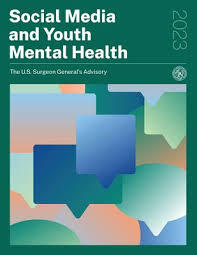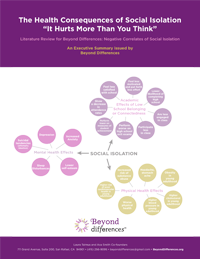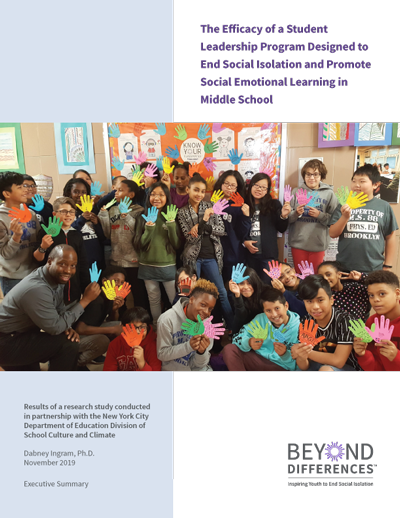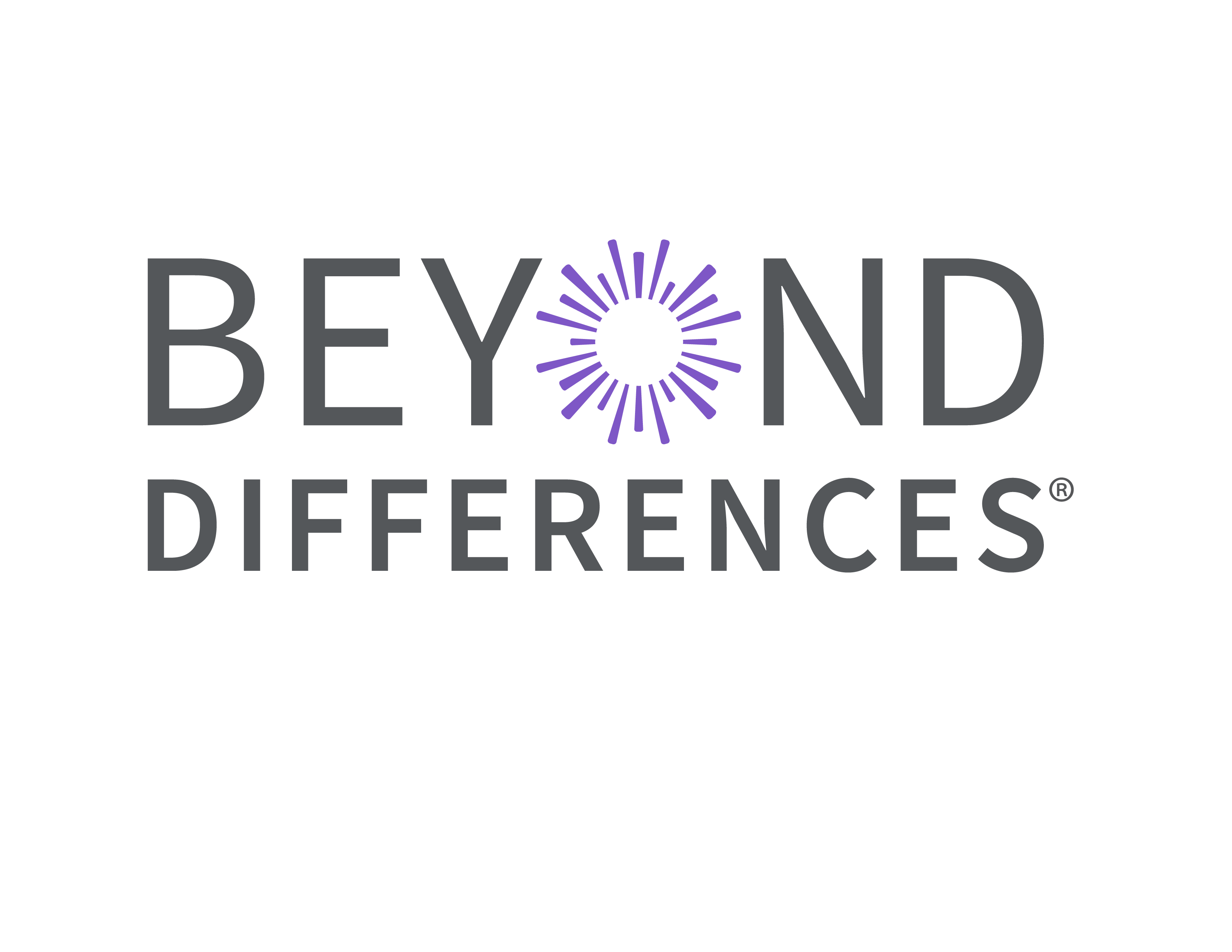What is
Social Isolation?
An invisible epidemic
Social isolation is caused by a lack of social connections that help young people feel included and respected among their peers.
The lack of these important connections results in poor mental health outcomes such as depression, anxiety, self-harm, suicidal ideation, and an increased risk of substance abuse.
In recent years, we have seen an increase in social isolation among middle school youth especially among students who are perceived as “different” because of their physical appearance, disability, race, ethnicity, sexual orientation, gender identity, religious beliefs, or other characteristics.
Our world has become increasingly intolerant and divided. We believe the youth of this generation have the power and natural motivation to turn that around and make a difference, starting with how they treat one another at school and on social media.
Students share how social isolation made them feel
Dr. Vivek Murthy
Loneliness, he argues, is affecting not only our health, but also how our children experience school, and the sense of division and polarization in our society.
In Dr. Murthy’s book Together: The Healing Power of Human Connection in a Sometimes Lonely World, featuring a chapter on Beyond Differences, he writes that 46% of students reported seeing or feeling social isolation weekly and that many students were feeling social isolation the strongest online.
“Many people described what they were feeling as a lack of belonging.”
Ways to take action based on your role
Educators
- Create a positive classroom evironment where students can feel safe and affirmed
- Learn how to recognize behavioral and emotional changes in students and take appropriate action
- Utilize social and emotional learning programs that promote cultural awareness and positive mental health outcomes
- Create a network of mental health support among school personnel
- Join Beyond Differences’ Learning Community with other educators who are creating positve change in their schools.
Youth
- Understand that social isolation creates real mental health challenges and its ok to ask for help
- Focus on builing healthy relationships with friends, family, and educators
- Be mindful of the way you use social media and other technology
- Practice healthy habits to handle stress and anxiety
- Reach out to others in need
- Help bring Beyond Differences’ youth programs to your school
Parents
- Do your best to make your home environment a stable and safe space
- Be aware of how your children are using social media or other online platforms
- Help your children build and maintain safe, healthy relationships with others
- Be on the lookout for new signs of emotional or physical distress in your child
- Create a support network with other parents in your community
- Bring information about Beyond Differences’ to your child’s school
Community Leaders
- Provide evidence-based resources that support children and their families that are at risk for social isolation
- Be aware and supportive of the unique mental health needs of racial and ethnic minorities, LGBTQ+ youth, foster youth, youth in the juvenile justice system, and youth with disabilities.
- Foster engagement and regular communication among community leaders
- Create support systems for parents who are struggling with financial or health issues which can impact their children
- Bring awareness of Beyond Differences’ programs to your local school districts
Shareable resources
Research shows that feeling socially isolated at school negatively affects students’ mental health, physical health, and academic performance. This can include poor self-esteem, anxiety, depression and suicidal thoughts and actions, increased risk of substance abuse, higher risk of poor physical health, and increased mortality.

Social Media and Youth Mental Health
The U.S. Surgeon General discusses the many ways that social media poses a risk of harm to the mental health and well-being of children and adolescents. He has issued a call for action for everyone to gain a better understanding of the way social media can be used to create safer online environments for children.

Health Consequences of Social Isolation
In 2019, Beyond Differences completed a year-long study in collaboration with ten NYC public schools. Doctors Dabney Ingram and Rebecca London, in partnership with Beyond Differences, compiled research that indicates social isolation’s long-term effects.The results were exciting and our organization incorporated the findings into our strategic plan.

The Efficacy of a Student Leadership Program
In 2019, Beyond Differences completed a year-long study in collaboration with ten NYC public schools. Dr. Dabney Ingram, education research & evaluation consultant led the study.
Funded by the Einhorn Family Charitable Trust.

